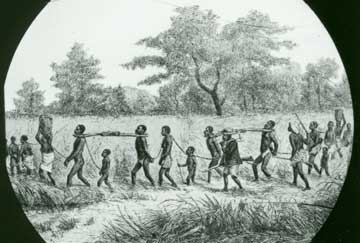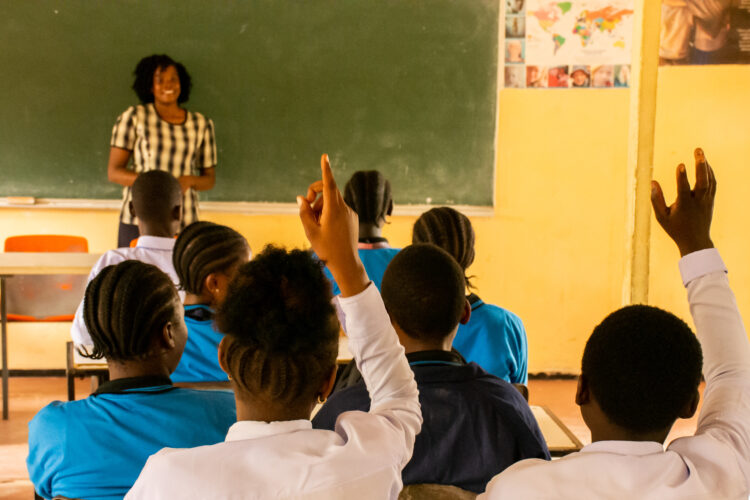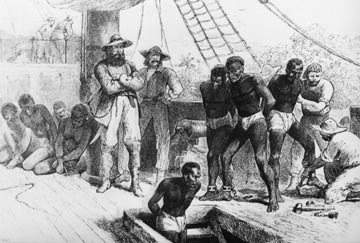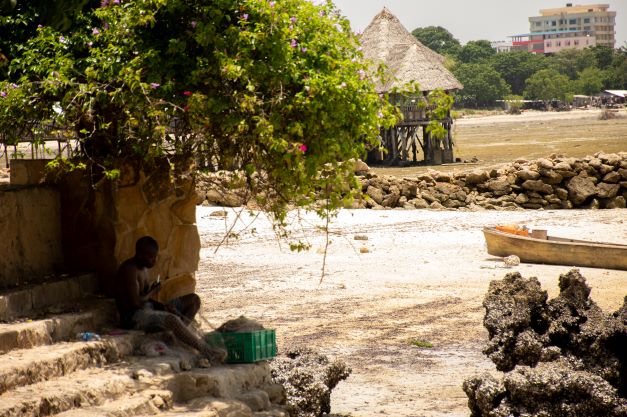Slavery resources

Speak out about modern slavery
We have a host of resources available for individuals, schools and faith groups
Download our free resources to help raise awareness of modern slavery in your communities

Global South Organisations Joint Statement on the EU Omnibus
A joint statement from 75 Global South organisations expressing deep concerns about reports that the EU may weaken the Corporate Sustainability Due Diligence Directive (CSDDD) through a backdoor deal without consulting affected communities in the Global South. Organisations warn that EU will fail workers and the environment worldwide if it walks back on key corporate accountability law.

Understanding the EU Forced Labour Regulation: Assessment and Recommendations
The European Center for Constitutional and Human Rights (ECCHR) and Anti-Slavery International publish Understanding the EU Forced Labour Regulation: Assessment and Recommendations.
This essential analysis explains the provisions of the final text and outlines what needs to be done for implementation. It aims to help civil society organisations and allies active in the sector to advocate for the effective implementation of the Regulation and support enforcement of the ban of forced labour goods.
Targeted action is needed to eliminate forced labour, protect the most vulnerable groups and effectively address the root causes of forced labour. The EU Forced Labour Regulation, which entered into force on 13 December 2024, is part of a global shift towards targeted action to eliminate forced labour in global supply chains.
Joint Submission to the Group of Experts on Action against Trafficking in Human Beings
Response to the Forth Evaluation Round of the Questionnaire for the evaluation of the implementation of the Council of Europe Convention on Action against Trafficking in Human Beings
Excerpt from Executive Summary:
Since GRETA’s third evaluation round in 2020, the United Kingdom has regrettably taken many steps back in tackling vulnerabilities to trafficking and modern slavery.
Contributors to this joint submission have identified the UK Government’s focus on immigration enforcement and securitisation as the main barrier to developing a strong prevention response and the cause of the erosion of the identification and support mechanisms for survivors of modern slavery. Independent monitoring mechanisms, such as the Home Affairs Select Committee, have expressed deep concerns in relation to the UK Government’s de-prioritisation of human trafficking in favour of a focus on irregular migration. More recently, the Lords Select Committee published their report following their inquiry into the Modern Slavery Act 2015, which found that immigration legislation has limited the support which the Act originally afforded to survivors, leaving them vulnerable and without adequate protection from their traffickers.
Submission by:
After Exploitation, Anti-Trafficking Monitoring Group, Anti Trafficking and Labour Exploitation Unit (ATLEU), British Red Cross (BRC), Every Child Protected Against Trafficking UK (ECPAT UK), Focus on Labour Exploitation (FLEX), Hestia, Hope for Justice, Human Trafficking Foundation & Lived Experience Advisory Panel, International Organization for Migration, Country office for the United Kingdom of Great Britain and Northern Ireland (IOM UK), Latin American, Women’s Rights Service (LAWRS), Taskforce on Survivors of Trafficking in Immigration Detention (Detention Taskforce), The Passage, The Salvation Army, The UK BME Anti-Slavery Network (BASNET), Unseen UK.
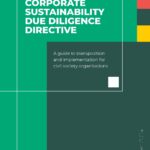
Transposition Guide for the Corporate Sustainability Due Diligence Directive (CSDDD)
The European Coalition for Corporate Justice (ECCJ), in collaboration with the Clean Clothes Campaign, European Centre for Constitutional and Human Rights, Frank Bold, Oxfam, CIDSE, FIDH, Anti-Slavery International, and Friends of the Earth Europe, publishes the Transposition Guide for the Corporate Sustainability Due Diligence Directive (CSDDD). This essential guide provides key insights and recommendations for the upcoming transposition phase of this EU directive.
The Transposition Guide was developed by a coalition of civil society organisations (CSOs) with the goal of supporting fellow CSOs in advocating for ambitious and effective transposition of the CSDDD across European Union Member States. The CSDDD represents a major advancement in promoting responsible business conduct within and beyond the EU, holding companies accountable for human rights and environmental harm resulting from their activities.
Following its adoption and publication in the EU’s Official Journal in June 2024, EU Member States are now in the process of integrating the Directive into national law over the next two years.
This guide outlines key priorities to address in the transposition process, including:
- Effective access to justice, including reversing the burden of proof in civil claims and ensuring practical time limitations.
- Effective and meaningful stakeholders engagement, which are the core of the chain of activities. This engagement should be done early and should be continuous.
- Broader personal scope, while removing conditions on the material scope defining human rights and aligning the environmental scope on international norms.
- Extending due diligence obligations to all relevant parts of the value chain, including the downstream activities of financial services.
This guide is a key resource for CSOs working towards an effective application of the CSDDD.
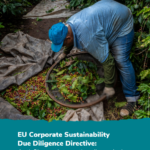
Analysis of the EU Corporate Sustainability Due Diligence Directive (CSDDD)
On 25 July 2024, the EU Corporate Sustainability Due Diligence Directive officially came into force. The Directive requires large companies operating in the EU to conduct human rights and environmental due diligence in their value chains.
This analysis is designed to inform civil society organisations and allies, helping them advocate for effective implementation and support workers in exercising their rights.
Read about the Directive’s provisions, what we advocated for, the gaps that still exist, and our ongoing advocacy to ensure strong implementation and corporate accountability.
Safe homes: Ensuring access to safe accommodation for survivors of modern slavery
This briefing by The Anti-trafficking Monitoring Group (ATMG) and Hope at home “Safe Homes” analyses some of the obstacles and gaps in support potential and confirmed survivors of modern slavery in asylum accommodations face when evicted because of becoming eligible to apply for social housing.
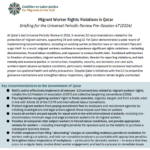
Migrant Worker Rights Violations in Qatar
Briefing for the Universal Periodic Review Pre-Session 47 (2024).
At Qatar’s last Universal Periodic Review in 2019, it received 52 recommendations related to the protection of migrant workers, supporting 39 and noting 13. Yet Qatar demonstrated a weak record of implementing recommendations, including on existing worker protection laws on recruitment fees and wage theft. As a result, migrant workers continue to experience significant rights violations – including discrimination, forced labour conditions, and exposure to serious health risks. Combined with barriers to freedom of association, migrant workers face intimidation, threats for reporting violations, and lack remedy and access to justice. In construction, hospitality, security, and domestic and care work, workers report abusive workplace conditions, particularly related to exposure to excessive heat without proper occupational health and safety precautions. Despite Qatar’s initiatives with the ILO to streamline grievance mechanisms and strengthen labour inspections, rights violations remain largely unchecked.
Non-Statutory First Responder Capacity 2024
This briefing aims to give an updated overview on the situation of non-statutory First Responders in their ability to refer potential survivors of modern slavery into the NRM in the 6 months between December 2023 and June 2024. The analysis has found an ongoing capacity issue affecting non-statutory First Responders, which are under considerable pressure. This is having detrimental consequences on survivors of trafficking and modern slavery, who are experiencing delays to access identification, support and protection.
A call for UK ban on products tainted with forced labour
To fulfil its commitment to eliminate forced labour from global value chains, the UK must introduce
import controls on products tainted with forced labour. Anti-Slavery International calls on the UK
Government to introduce primary legislation to ban the import of goods tainted with forced
labour. The ban should cover products made (in whole or in part) or transported using forced
labour. This briefing document outlines the rationale behind this call, as well as the elements that the
proposed law must include.
A call for a UK Business, Human Rights and Environment Act
Anti-Slavery International is campaigning alongside the Corporate Justice Coalition and other organisations to make the case for a new Business Human Rights and Environment Act (BHRE).
We have published a policy paper with an overview of the rationale behind our legislative call. We outline the UK’s current lack of mechanisms to hold companies accountable for a failure to prevent abuses, the need to level the playing field between businesses, as well as the urgency for guaranteeing access to justice for victims of corporate abuses. We also provide a series of recommendations to ensure the UK plays its part in addressing forced labour in value chains. This includes both the principal elements of the BHRE Act and a wider mix of additional measures.
Note this policy paper was updated in July 2024.
